 W
WKathleen Mary Tyrer Atkinson, née Chrimes was an ancient historian and archaeologist working in Britain, Greece, and Cyprus; she was the first woman professor at Queen's University Belfast, and a Fellow of the Society of Antiquaries.
 W
WKarl Julius Beloch was a German classical and economic historian.
 W
WIza Bieżuńska-Małowist was a Polish historian of the Ancient Era, professor at the Historical Institute of the University of Warsaw. Her husband Marian Małowist (1909–1988) was also a historian.
 W
WCorinne Bonnet is Professor of Greek History at the University of Toulouse, France. She is known for her work on ancient Mediterranean history and religion. She is currently the Principal Investigator of the ERC Advanced Grant project Mapping Ancient Polytheisms.
 W
WJérôme Carcopino was a French historian and author. He was the fifteenth member elected to occupy seat 3 of the Académie française, in 1955.
 W
WFrancesco Carotta is an Italian writer who developed a theory that the historical Jesus was based on the life of Julius Caesar, that the Gospels were a rewriting of Roman historical sources, and that Christianity developed from the cult of the deified Caesar. This theory is generally ignored in academic circles.
 W
WRichard Cevantis Carrier is an American author and activist, whose work focuses on empiricism, atheism, and the historicity of Jesus. A long-time contributor to self-published philosophical web sites, including The Secular Web and Freethought Blogs, Carrier has published a number of books and articles on philosophy and religion in classical antiquity, discussing the development of early Christianity from a skeptical viewpoint, and concerning religion and morality in the modern world. He has publicly debated a number of scholars on the historical basis of the Bible and Christianity. He is a prominent advocate of the theory that Jesus did not exist, which he has argued in a number of his works. Carrier's methodology and conclusions in this field have proven controversial and unconvincing to specialists, and he and his theories are often identified as "fringe".
 W
WEdith Gillian Clark is Emeritus Professor of Classics and Ancient History at the University of Bristol. She retired from the University of Bristol in 2010. Clark has made a significant contribution to the history, literature, and religion of late antiquity.
 W
WEric H. Cline is an author, historian, archaeologist, and professor of ancient history and archaeology at The George Washington University (GWU) in Washington, DC, where he is Professor of Classics and Anthropology and the former Chair of the Department of Classical and Near Eastern Languages and Civilizations, as well as Director of the GWU Capitol Archaeological Institute. He is also the advisor for the undergraduate archaeology majors, for which he was awarded the GWU Award for "Excellence in Undergraduate Departmental Advising" (2006). Cline is co-editor of the Bulletin of the American Schools of Oriental Research along with Christopher Rollston.
 W
WJovan I. Deretić is a Serbian publicist and writer. Deretić is an engineer by training, but is mainly noted for his historical theories. He is the proponent of an alternative history of the Serbs that asserts a larger role in history than described by historians. He is sometimes confused with distinguished literary historian Jovan Deretić.
 W
WJean Victor Duruy was a French historian and statesman.
 W
WWilliam George Grieve Forrest, known as George Forrest, was a British classicist and academic. From 1977 to 1992, he was Wykeham Professor of Ancient History at the University of Oxford.
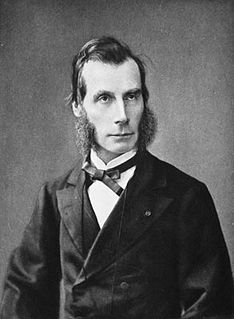 W
WNuma Denis Fustel de Coulanges was a French historian. Joseph McCarthy argues that his first great book, The Ancient City (1864), was based on his in-depth knowledge of the primary Greek and Latin texts. The book argued that:Religion was the sole factor in the evolution of ancient Greece and Rome, the bonding of family and state was the work of religion, that because of ancestor worship the family, drawn together by the need to engage in the ancestral cults, became the basic unit of ancient societies, expanding to the gens, the Greek phratry, the Roman tribe, to the patrician city state, and that decline in religious belief and authority in the moral crisis provoked by Roman wealth and expansion doomed the republic and resulted in the triumph of Christianity and the death of the ancient city state.
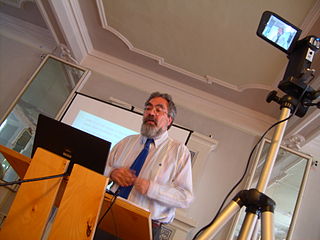 W
WAnthony Thomas Grafton is an American historian of early modern Europe and the Henry Putnam University Professor of History at Princeton University, where he is also the Director the Program in European Cultural Studies. He is also a corresponding fellow of the British Academy and a recipient of the Balzan Prize. From January 2011 to January 2012, he served as the President of the American Historical Association.
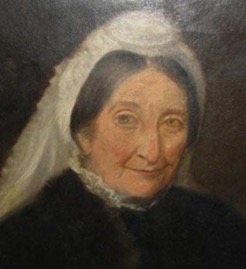 W
WElizabeth Caroline Hamilton Gray was a Scottish historian and travel author, born in Alva, Clackmannanshire, as the eldest daughter of James Raymond Johnstone and granddaughter of the colonial businessman John Johnstone. After marrying John Hamilton Gray, a priest and genealogist, in June 1829, Gray moved to Bolsover Castle in England, where she lived until shortly before her death.
 W
WHéctor Enrique Herrera Cajas was a Chilean historian whose specialty was Byzantinistics.
 W
WLéon Heuzey was a noted French archaeologist and historian.
 W
WOtto Hirschfeld was a German epigraphist and professor of ancient history who was a native of Königsberg.
 W
WBettany Mary Hughes is an English historian, author and broadcaster, specialising in classical history. Her published books cover classical antiquity and myth, and the history of Istanbul. She is active in efforts to encourage the teaching of the classics in UK state schools. Hughes was appointed OBE in 2019.
 W
WFrank Kolb is a German professor of ancient history at the University of Tübingen in Germany. He has been involved in a controversy over findings concerning the late Bronze Age in Troy, and accused Dr. Manfred Korfmann, a professor who has been leading excavations at the archaeological site of Troy, of deliberately misrepresenting his findings there. Kolb believes Troy was not an important city, but Korfmann had suggested that it was a significant trade centre.
 W
WGeorg Hans Bhawani Luck was a Swiss classicist known for his studies of magical beliefs and practices in the Classical world. For over twenty years he was a professor at the Johns Hopkins University in Baltimore, Maryland.
 W
WRuth Iouliani (Juliana) Macrides was a UK-based historian of the Byzantine Empire. At the time of her death, she was Reader in Byzantine Studies at the Centre for Byzantine, Ottoman and Greek Studies at the University of Birmingham. She was an expert in Byzantine history, culture and politics, particularly of the mid-later Byzantine period, and of the reception of Byzantium in Britain and Greece.
 W
WThomas F. Madden is an American historian, a former Chair of the History Department at Saint Louis University in St. Louis, Missouri, and Director of Saint Louis University's Center for Medieval and Renaissance Studies. A specialist on the Crusades, he has often commented in the popular media after the events of September 11, to discuss topics such as how Muslims have viewed the medieval Crusades and their parallels to today's interventions in the Middle East. He has frequently appeared in the media, as a consultant for various programs on the History Channel and National Public Radio. In 2007, he was awarded the Haskins Medal from the Medieval Academy of America, for his book Enrico Dandolo and the Rise of Venice, also a "Book of the Month" selection by the BBC History magazine. In 2012, he was named a Fellow of the John Simon Guggenheim Memorial Foundation. In 2018, he was named a National Endowment for the Humanities Public Scholar.
 W
WChristian Matthias Theodor Mommsen was a German classical scholar, historian, jurist, journalist, politician and archaeologist. He was one of the greatest classicists of the 19th century. His work regarding Roman history is still of fundamental importance for contemporary research. He received the Nobel Prize in Literature in 1902 for being "the greatest living master of the art of historical writing, with special reference to his monumental work, A History of Rome", after having been nominated by 18 members of the Prussian Academy of Sciences. He was also a prominent German politician, as a member of the Prussian and German parliaments. His works on Roman law and on the law of obligations had a significant impact on the German civil code.
 W
WHeinrich Nissen was a German professor of ancient history.
 W
WChristian Friedrich Georg Wilhelm Oncken was a German historian.
 W
WSitta von Reden is a German ancient historian and Professor of Ancient History at the Albert-Ludwigs-Universität, Freiburg. She is particularly known for her research on ancient economics, and the social and cultural history of the Graeco-Roman world.
 W
WSalomon Reinach was a French archaeologist and religious historian.
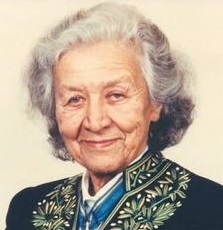 W
WJacqueline Worms de Romilly was a Franco-Greek philologist, classical scholar and fiction writer. She was the first woman nominated to the Collège de France, and in 1988, the second woman to enter the Académie française.
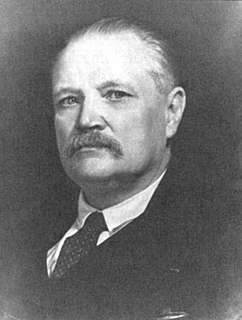 W
WMikhail Ivanovich Rostovtzeff, or Rostovtsev was a Russian historian whose career straddled the 19th and 20th centuries and who produced important works on ancient Roman and Greek history. He was a member of the Russian Academy of Science.
 W
WItamar Singer was an Israeli author and historian of Jewish-Romanian origin. He is known for his research of the Ancient Near East and as a leading Hittitologist, pioneering the study of this ancient Anatolians culture in Israel and elucidating the tensions which brought about its demise.
 W
WJaakko Suolahti was a Finnish classical scholar and historian Suolahti was one of the leading classicists during his time and reached international recognition within the areas of political- and social culture in the Roman Republic.
 W
WEdward Arthur Thompson was an Irish-born British historian who specialized in classicism and medieval studies. He was Professor and Director of the Classics Department at the University of Nottingham from 1948 to 1979, and a Fellow of the British Academy. Thompson was a pioneer in the study of Late Antiquity, and was for decades the most prominent British scholar in this field. He was particularly interested in the relations between Ancient Rome and "barbarian" peoples such as the Huns and Visigoths, and has been credited with revitalizing English-language scholarship on the history of early Germanic peoples. Thompson's works on these subjects have been highly influential.
 W
WAlfred Twardecki is a Polish historian of antiquity and translator. He works as curator at the Department of Ancient and Eastern Christian Art in the National Museum in Warsaw. He graduated in 1986 from the Department of History of Warsaw University.
 W
WJean-Pierre Vernant was a French historian and anthropologist, specialist in ancient Greece. Influenced by Claude Lévi-Strauss, Vernant developed a structuralist approach to Greek myth, tragedy, and society which would itself be influential among classical scholars. He was an honorary professor at the Collège de France.
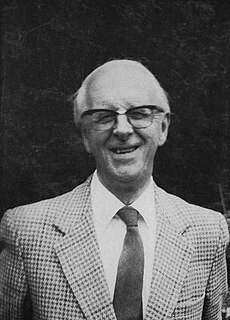 W
WFrank William Walbank was a scholar of ancient history, particularly the history of Polybius. He was born in Bingley, Yorkshire, and died in Cambridge.
 W
WGeorg Otto August Wissowa was a German classical philologist born in Neudorf, near Breslau.
 W
WMichael David Wood, is an English historian and broadcaster. He has presented numerous well-known television documentary series from the late 1970s to the present day. Wood has also written a number of books on English history, including In Search of the Dark Ages, The Domesday Quest, The Story of England, and In Search of Shakespeare. He was appointed Professor of Public History at the University of Manchester in 2013.